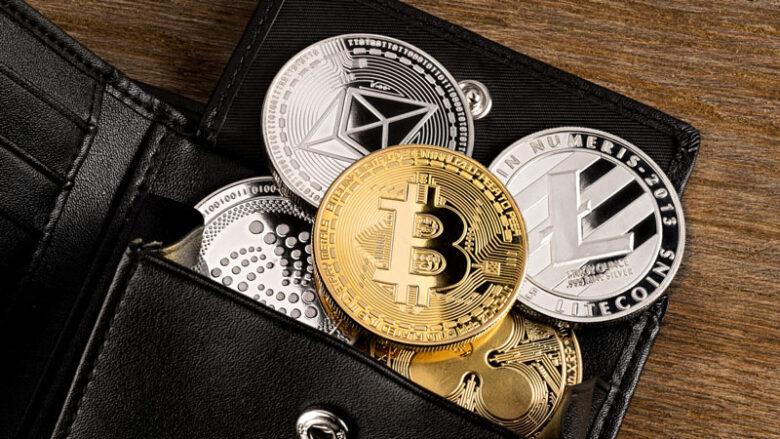Cryptocurrencies have continued to gain traction as a mainstream financial tool in 2025, revolutionizing the way we think about money and investments. However, whether you’re an experienced crypto trader or just starting your journey, one essential element remains constant: the importance of having a secure and reliable crypto wallet. Designed to keep your digital assets safe and accessible, crypto wallets are the foundation of any cryptocurrency strategy. Here, we’ll discuss what you need to know about them, the various options available, and how to make the most informed choice for your needs.
What is a Crypto Wallet?
A crypto wallet is a digital tool essential for storing and managing cryptocurrencies. Unlike traditional wallets that hold cash or cards, crypto wallets function as a repository for digital keys, which give users access to their crypto assets on a blockchain. These wallets hold two keys – a public key, which is like an account number for sending and receiving funds, and a private key, a confidential PIN that ensures only the owner can authorize transactions. Without these keys, users lose access to their investments, underlining the fundamental role crypto wallets play in the digital ecosystem.
Types of Crypto Wallets
Crypto wallets come in a variety of forms, each offering unique benefits and drawbacks. Hardware Wallets, often considered the gold standard of security, store keys offline in physical devices like USB drives. These wallets are immune to online threats but can be lost or damaged. On the other hand, Software Wallets operate through applications designed for desktops and smartphones, providing greater convenience but requiring robust cybersecurity measures. Online Wallets, also known as web wallets, offer unmatched accessibility by being cloud-based, but they are more vulnerable to hacking, as sensitive data is stored online. Lastly, Paper Wallets, which involve printing keys onto physical paper, ensure absolute disconnect from online vulnerabilities but demand careful handling to prevent loss or damage.
Chart Example for Wallet Comparison
The chart below outlines the pros and cons of each wallet type to help you choose the best option for your needs:
|
Wallet Type |
Advantages |
Drawbacks |
|---|---|---|
|
Hardware Wallet |
Highly secure, immune to online hacks |
Can be lost/damaged, less convenient |
|
Software Wallet |
User-friendly, accessible on devices |
Prone to malware or phishing attacks |
|
Online Wallet |
Accessible anywhere with an internet connection |
Vulnerable to hacking, depends on third-party trust |
|
Paper Wallet |
Completely offline, free |
Prone to physical loss/damage |
Key Features to Look for
When choosing a crypto wallet in 2025, key features can make or break your security and user experience. First and foremost, prioritize security. Look for wallets with advanced end-to-end encryption and features like two-factor authentication (2FA). User-friendliness is equally important, especially for beginners who need intuitive interfaces. Another crucial aspect is supported cryptocurrencies. Not all wallets support every token, so ensure yours aligns with your crypto holdings. Finally, having reliable backup and recovery options is critical. Wallets with mnemonic phrases or recovery tools provide peace of mind in case you lose access.
Setting Up Your First Wallet
Starting your crypto wallet in 2025 is straightforward, even for those new to cryptocurrencies. Begin by selecting the type of wallet suited to your needs and download its app or obtain the physical product. For example, if security is your primary concern, you may opt for a hardware wallet like Ledger Nano X. Once acquired, follow the wallet’s guide to generate your public and private keys. Remember, always write down the recovery phrase provided and store it in a secure offline location. Thoroughly test receiving and sending small transactions to ensure everything is set up correctly without risking your funds.
Securing Your Crypto Wallet
Security is the backbone of crypto investing, and safeguarding your wallet is non-negotiable. Start by enabling two-factor authentication (2FA) to add an extra layer of protection. Use strong, unique passwords that cannot easily be guessed, and consider a password manager for safe storage. Avoid clicking on suspicious emails, as phishing scams are increasingly sophisticated in 2025. Always update your wallet’s firmware and software to patch vulnerabilities and disable wallet access on shared or public devices.
Understanding Transaction Fees
Whether transferring funds or executing smart contracts, transaction fees are an inherent part of blockchain technology. These fees vary depending on the cryptocurrency and the network’s traffic. For example, during periods of high congestion, Ethereum gas fees can spike. Wallets often optimize fees, allowing users to choose higher costs for faster transaction processing or lower fees if they’re willing to wait. Understanding these charges ensures you avoid surprises and allocate funds strategically.
Future Trends in Crypto Wallets
Cryptocurrency technology is dynamic, and wallets are continually advancing in capabilities. Multi-signature wallets, or multi-sig wallets, are gaining popularity for their ability to distribute access to funds across multiple private keys. This offers enhanced security, especially for businesses. Biometric authentication, using fingerprints or facial recognition, is another forefront innovation, simplifying the user experience while maintaining security. By 2025, we can also expect greater integration with decentralized finance (DeFi), allowing wallets to act as gateways to lending, staking, and yield farming.
Common Mistakes to Avoid
Cryptocurrency wallets offer unmatched benefits but come with responsibilities. One of the most common mistakes is losing access to private keys or recovery phrases. These are irreplaceable, and losing them means losing all your funds permanently. Another frequent misstep is using unverified wallets or falling for scam apps, which can compromise your crypto. Finally, avoid sharing your private keys with anyone or saving them digitally in easily hackable formats, like cloud storage. Following these measures helps protect your assets and ensures long-term peace of mind.
Why Crypto Wallets Matter More Than Ever
As cryptocurrencies continue to reshape the global economy, the need for secure and versatile crypto wallets has never been more critical. Whether you’re new to crypto or building an advanced portfolio, the right wallet ensures your investments are not only secure but also optimized for growth. Staying informed and proactive in 2025 is the best way to make the most of your digital assets.




